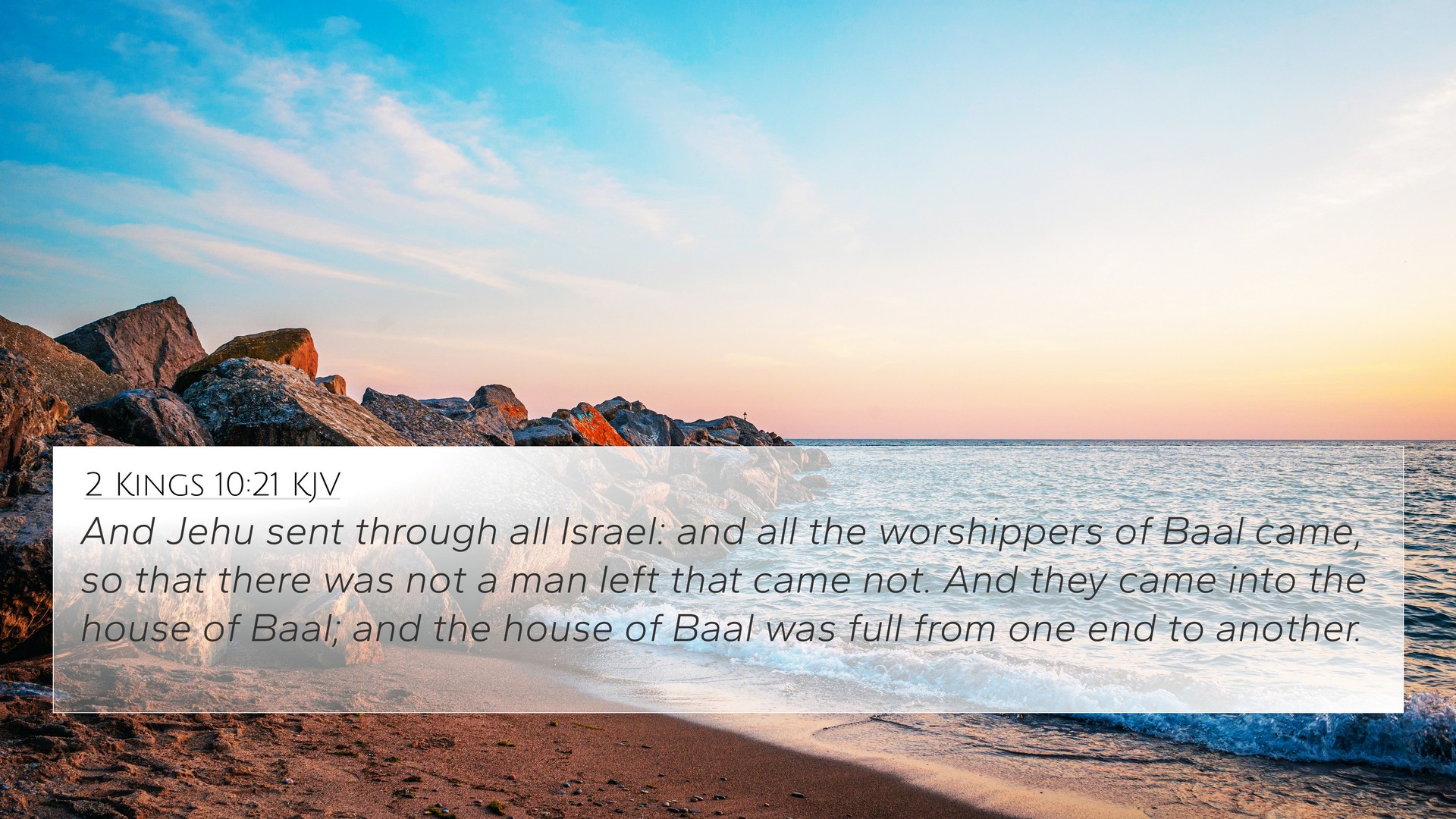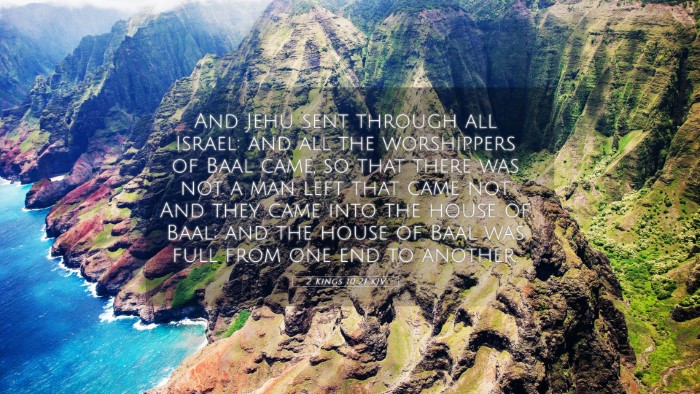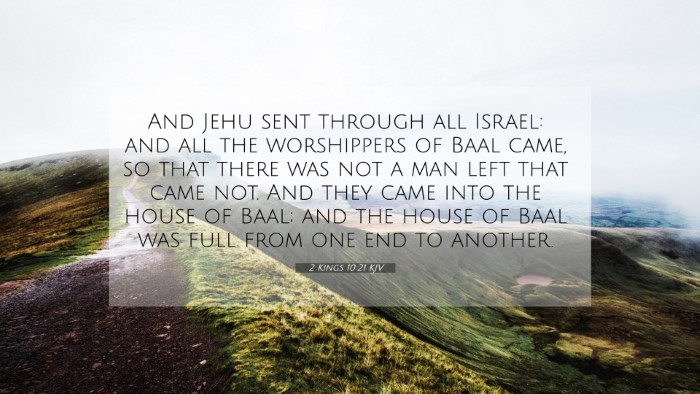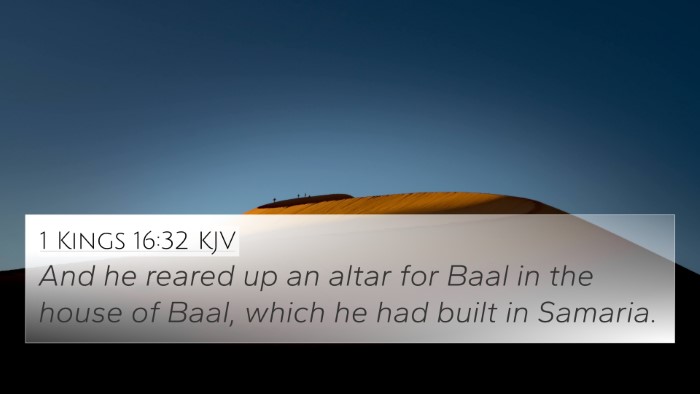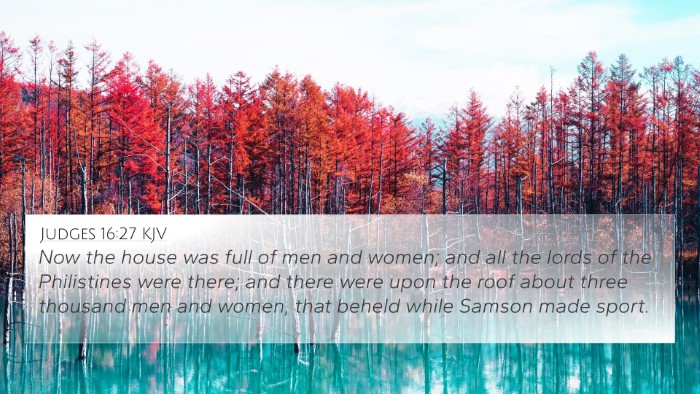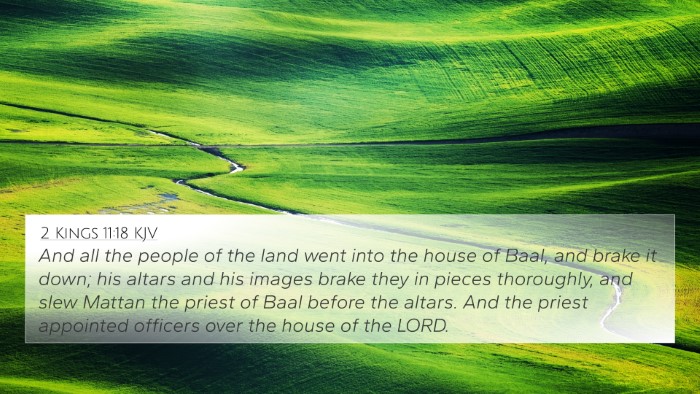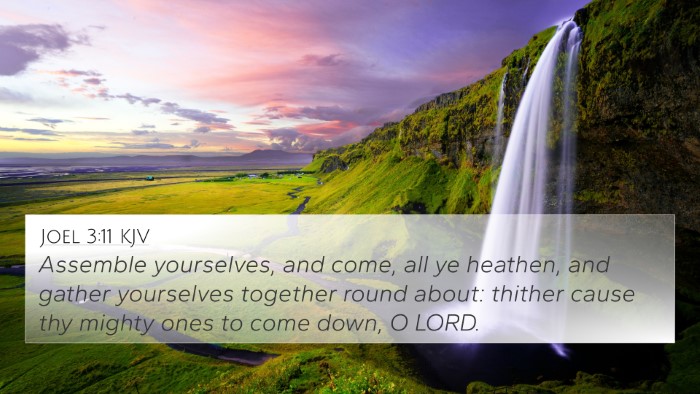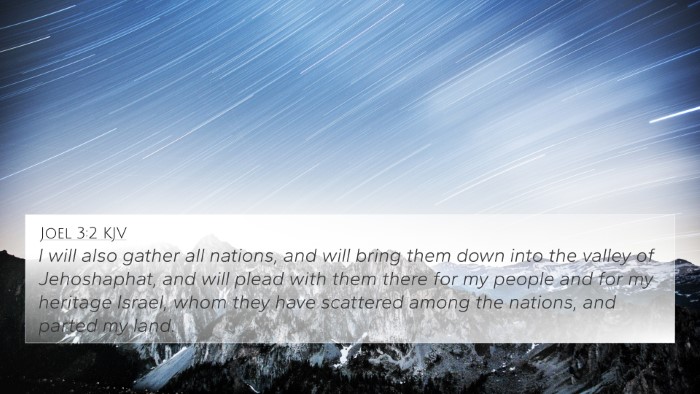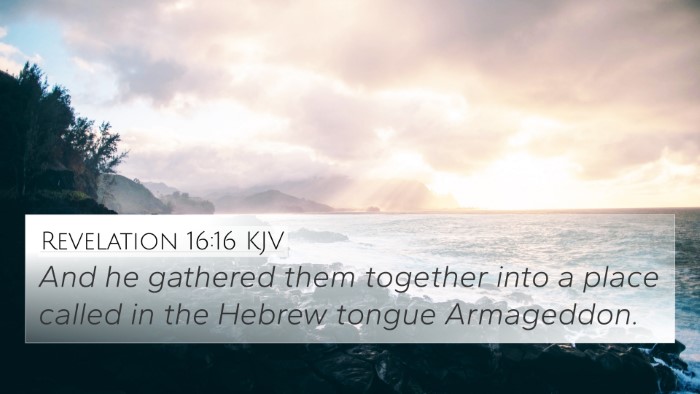Understanding 2 Kings 10:21
2 Kings 10:21 states:
"And Jehu sent throughout all Israel: and all the worshippers of Baal came, so that there was not a man left that came not. And they came into the house of Baal; and the house of Baal was full from one end to another."
This verse is a pivotal point in the narrative of Jehu's reign and God's judgment upon the house of Ahab. Several public domain commentaries provide insights into its meaning, shedding light on its theological implications and connections within the broader biblical context.
Summary of Interpretations
- Matthew Henry's Commentary:
Henry emphasizes the significance of Jehu's mission to eradicate Baal worship from Israel. The gathering of Baal's worshippers illustrates the depth of idol worship during Ahab's reign and highlights God's judgment against it. Jehu's actions are seen as part of God's plan to rid the land of false idols and restore true worship.
- Albert Barnes' Remarks:
Barnes notes that the summoning of Baal's worshippers indicates a significant national gathering, revealing both the power of Baal worship and the challenge it posed to the devotion of the Israelites to Yahweh. This verse serves as a turning point where the fate of the worshippers is sealed by their allegiance to Baal, thus connecting to the broader narrative of divine retribution.
- Adam Clarke's Commentary:
Clarke reflects on the “house of Baal” being filled to capacity, symbolizing the full measure of idolatry. He suggests that Jehu’s actions should be understood not only as political but also as deeply spiritual, demonstrating God’s intolerance for idolatry. This event underscores the seriousness of worshipping false gods and the consequences that follow.
Thematic Connections and Cross-References
This verse relates to various themes in the Bible, especially regarding idolatry, divine judgment, and the restoration of worship:
- 1 Kings 18:20-40: The contest on Mount Carmel, where Elijah confronts the prophets of Baal.
- 2 Kings 9:6-10: The anointing of Jehu as king to execute judgment against the house of Ahab.
- Exodus 20:3-5: The commandments prohibiting idol worship, reinforcing God’s sovereignty.
- 2 Chronicles 22:3-4: The influence of Ahab's family on Judah's kings, illustrating the spread of idolatry.
- Jeremiah 44:15-19: The continued worship of foreign gods despite God’s warnings, echoing the theme of false worship.
- Ezekiel 8:5-18: A vision of idolatrous practices in Jerusalem, demonstrating the persistent issue of apostasy.
- Romans 1:21-23: A New Testament reflection on the consequences of exchanging the worship of the Creator for created things.
Cross-Referencing and Interpretation Techniques
Understanding Biblical texts often involves cross-referencing to identify connections between various scriptures. Here are some tools and methods for effective cross-referencing:
- Bible Concordance: Use a concordance to find words and phrases related to your passages of interest.
- Bible Cross-Reference Guide: Consult guides that detail connections between similar themes across the scriptures.
- Cross-Reference Bible Study: Engage in studies that highlight relationships between different books of the Bible.
- Bible Reference Resources: Utilize various study resources that aggregate relevant verses supporting specific themes.
- Tools for Bible Cross-Referencing: Leverage software tools that help visualize scriptural links and thematic connections.
Conclusion
2 Kings 10:21 serves as a critical reminder of the consequences of idolatry and God's commitment to purifying His people. Through the lens of historical and theological insights provided by respected commentaries, we gain a deeper understanding of the implications of Jehu's actions and their significance in the biblical narrative.
